
The Last Starfighter
The Last Starfighter is sweet wish fulfillment, representing the gaming collective's unspoken hope of somehow redeeming their digital deeds in the real world. What if all those hours plunked into an arcade game somehow mattered? This movie offers a rather fantastical answer.
Most hobbies reward perseverance. A runner’s determination, after all, is what earns him the trophy. A photographer doesn’t rest until the perfect shot is snapped. And it’s a crocheter’s diligence that brings a shelf of plushies into being.
But what does a gamer receive for his hard work? How is he rewarded after spending endless days in an arcade or glued to a controller at home? Maybe a high score spot on the leaderboard? An Xbox achievement? A self-congratulatory pat on the back? When put in such cynical terms, the pastime seems less romantic…are games really the “wastes of time” that so many mothers once suggested, a hollow hobby holding only the illusion of self-improvement?
The Last Starfighter sees the fear and searches for a better answer. Or better yet, a vindication. What if all those hours spent playing a meaningless game actually served a higher purpose? What if all that cumulative skill could then be funneled towards a greater cause? Starfighter taps into this unconscious wish, a gamer’s unspoken hope that his obsession with a given game is somehow justified.
Indeed, the film’s hero—Alex Rogan—represents that early ‘80s chase for instant fame, where triggering the kill screen in Donkey Kong or rolling the score in Galaga might bring the average teen a stint of attention. But Alex gets more than a little recognition; after nabbing the high score on a Starfighter arcade machine, he finds himself enlisted into an interstellar war. Why? Because the game was really a testing device designed to pinpoint the galaxy’s most talented starship gunners—and Alex, apparently, is one of the best. It takes some convincing, but the reluctant hero eventually joins the Rylan Star League and, with a pilot named Grig, sets out to overthrow the villainous Ko-Dan Empire.
It’s a fun, dumb, and wistful premise, the latter point being especially true forty years later. Although modern gamers can now seek fame by streaming online or competing in eSport competitions, those who’ve ever been absorbed by an MMO/battle royale/farming sim/strategy wargame/fantasy adventure all share a similar longing:
If only this were real. If only my heroism and triumphs and stature gained in this digital realm was worth more in the real world.
Sadly, those hundreds of orcs slain or terrorists sniped…they’re all but button presses and mouse clicks in the end. Pressing a keyboard isn’t quite like swinging a sword or holding a gun. And reality doesn’t have much need for dragon slayers or spellcasters besides.
If The Last Starfighter doesn’t quite redeem gaming’s true believers and hopeless romantics, it’s at least offers them a sympathetic salve, adding esteem to their unrealized dreams and a feel-good fairy tale to project their impossible wants. It’s not a great film exactly, but like any work of significance, it speaks to those of a certain persuasion. It can’t grant but does understand; it’s a dirge that still affirms.
Or put another way: the film is a confirmation of belief and an exercise in faith. A validation, one might say, for all those would-be heroes groping, hoping, and moping across that digital dreamscape.--D
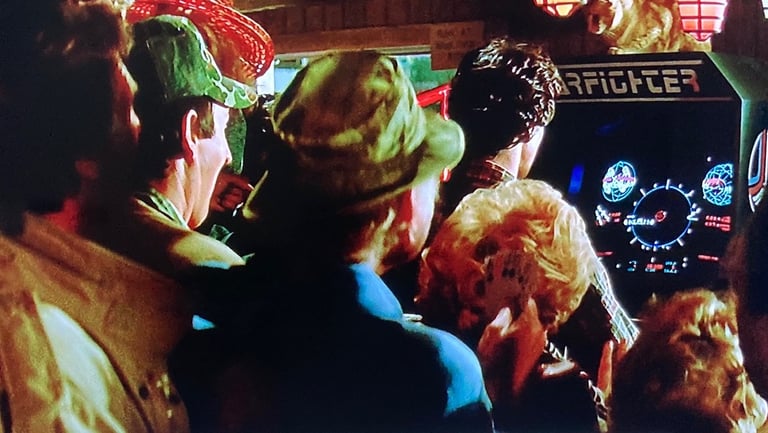



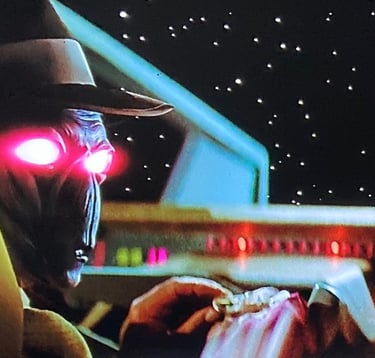

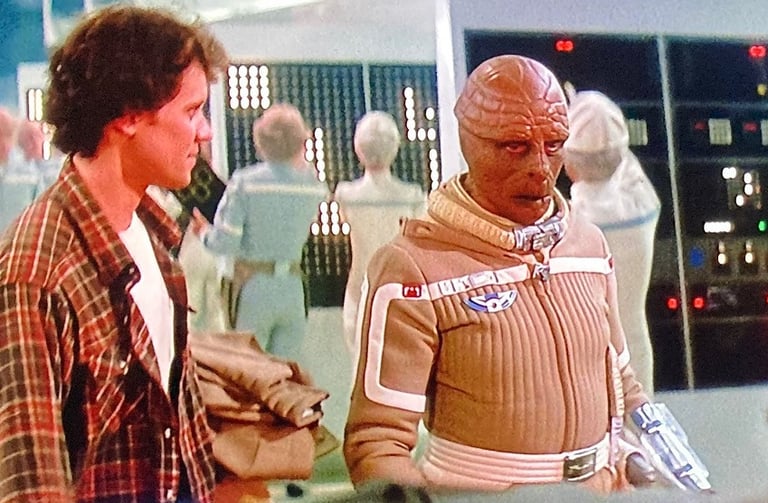

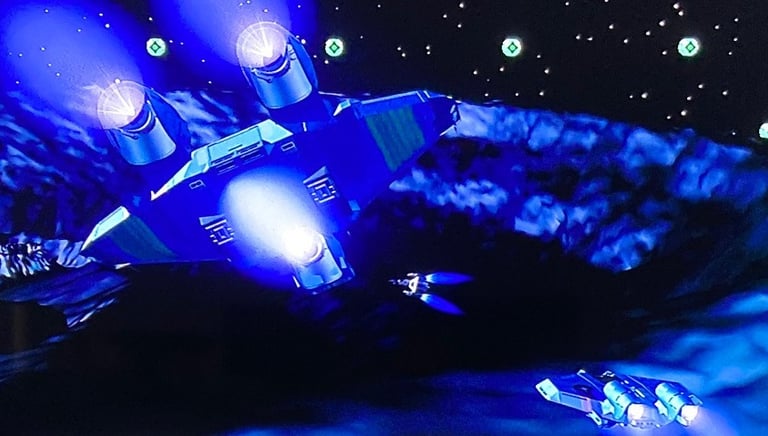

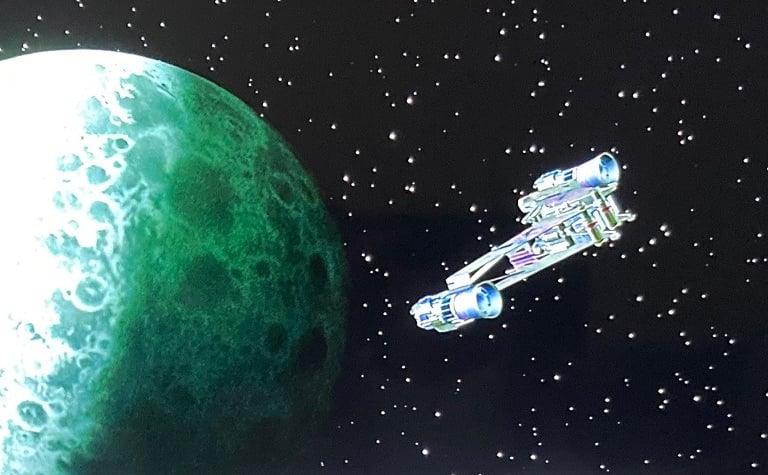

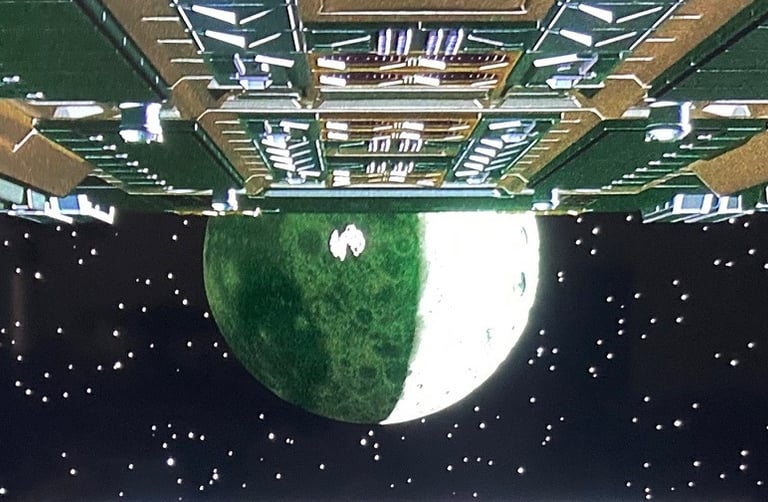

As Alex approaches the high score, everyone in his trailer park comes out to watch. Wow.
Centauri, Alex's "recruiter," has an enlightening alter ego.
Alex is paired with Grig, the ship's actual pilot. This would seem to be the more important of their two roles (gunner and pilot, respectively), but Alex gets most of the acclaim in the end.
The Last Starfighter, like Tron, was a kind of early experiment in CGI special effects. The ships have a strangely clean, untextured look by today's standards, but this was state-of-the-art (if underappreciated) tech for the era.
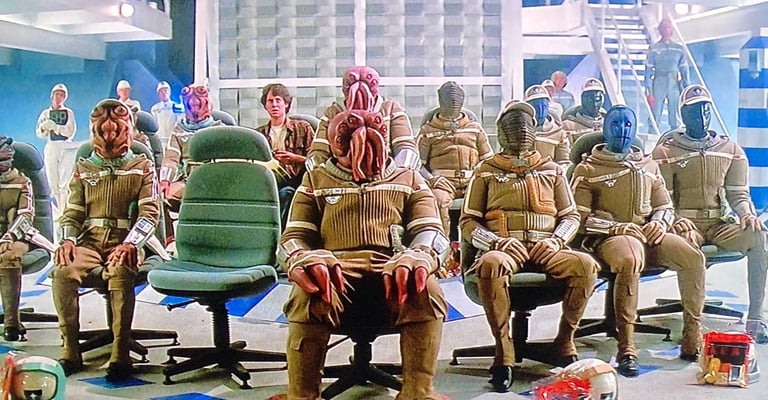

Alex's fellow starfighters...great looking crew, right? Right?
Contact: lostnostalgiaproductions@gmail.com
Website: www.lostnostalgia.com
Like what we're doing? Please consider throwing us a dollar into our Patreon page's tip jar!


